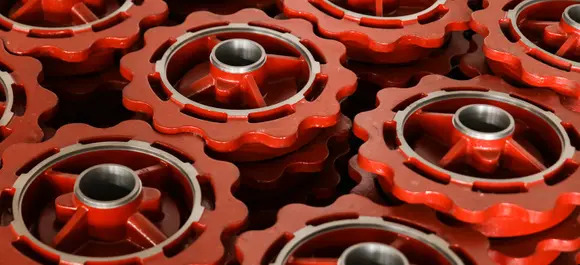Mobile:+86-311-808-126-83
Email:info@ydcastings.com
Exploring the Design and Benefits of Monoblock Impellers in Modern Engineering
Understanding Monoblock Impellers Design, Applications, and Benefits
Monoblock impellers are an integral component in various fluid handling systems. These devices are used to generate flow and pressure in a wide range of applications, from industrial pumps and compressors to marine propulsion systems. The monoblock design, characterized by a single-piece construction, brings several advantages over traditional impellers that are often made of multiple components. In this article, we will delve into the design, applications, and benefits of monoblock impellers, highlighting their significance in modern engineering.
Design Features
The defining characteristic of a monoblock impeller is its single-piece construction. This design eliminates the need for multiple parts that must be assembled, thereby reducing the risk of failure due to mechanical issues or misalignment. The manufacturing process typically involves precision casting or machining techniques that create an impeller with highly optimized hydraulic performance.
Monoblock impellers are usually crafted from materials such as stainless steel, bronze, or advanced polymers, each selected based on the specific application requirements, including corrosion resistance, weight, and strength. The impeller's blades are designed to enhance fluid flow and efficiency, often featuring intricate profiles that optimize performance parameters like flow rate and pressure buildup.
Applications
Monoblock impellers have a wide array of applications across various industries. One prominent use is in centrifugal pumps, where they facilitate the movement of liquids in wastewater treatment plants, chemical processing, and oil and gas industries. They are ideal for applications requiring high efficiency and reliable performance under varying operating conditions.
In HVAC (heating, ventilation, and air conditioning) systems, monoblock impellers are utilized in blowers and fans for air circulation, heat exchange, and air filtration. Their streamlined design helps to minimize energy consumption while maximizing airflow, making them a preferred choice for energy-efficient systems.
Marine applications also benefit from monoblock impellers. They are used in water jet propulsion systems, where reliability and efficiency are paramount. The monoblock construction ensures that the impeller can withstand harsh marine environments, characterized by high pressures and the presence of corrosive elements.
Moreover, in the field of medical devices, monoblock impellers are found in various pumps used for drug delivery and blood circulation, emphasizing their versatility and importance across diverse sectors
.monoblock impeller

Benefits
The monoblock design offers numerous advantages that contribute to its growing popularity.
1. Reduced Assembly Time Since monoblock impellers are manufactured as a single unit, there is no need for intricate assembly processes. This not only saves time during production but also simplifies maintenance tasks.
2. Enhanced Reliability The absence of joints and potential weak points inherent in multi-part designs results in increased durability and reliability. This translates to lower maintenance costs and reduced downtime, which is crucial for industries where operational continuity is essential.
3. Improved Performance The streamlined shape and optimized hydraulic design lead to superior performance in terms of flow rate and efficiency. Monoblock impellers can achieve higher operational efficiencies, thus lowering energy consumption and operational costs.
4. Versatility As noted, these impellers find use in a variety of applications across different industries. Their adaptability to different fluids, varying pressures, and temperatures showcases their universal applicability.
5. Compact Design Monoblock impellers often have a more compact footprint compared to traditional multi-part designs, making them suitable for installations where space is limited.
Conclusion
Monoblock impellers represent a significant advancement in impeller technology, offering robust solutions for fluid handling across a range of industrial applications. Their innovative design provides numerous benefits, including improved reliability, performance, and efficiency. As industries continue to seek ways to enhance productivity while minimizing operational costs, the monoblock impeller stands out as a vital component that meets these demands effectively. Whether in a pump, fan, or marine propulsion system, the role of monoblock impellers will remain crucial in the evolution of fluid dynamics technology.
-
Why Should You Invest in Superior Pump Castings for Your Equipment?NewsJun.09,2025
-
Unlock Performance Potential with Stainless Impellers and Aluminum End CapsNewsJun.09,2025
-
Revolutionize Your Machinery with Superior Cast Iron and Aluminum ComponentsNewsJun.09,2025
-
Revolutionize Fluid Dynamics with Premium Pump ComponentsNewsJun.09,2025
-
Optimizing Industrial Systems with Essential Valve ComponentsNewsJun.09,2025
-
Elevate Grid Efficiency with High-Precision Power CastingsNewsJun.09,2025











